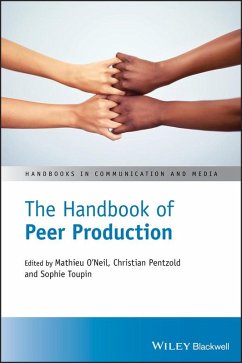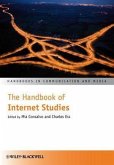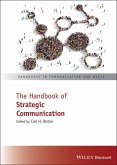The definitive reference work with comprehensive analysis and review of peer production Peer production is no longer the sole domain of small groups of technical or academic elites. The internet has enabled millions of people to collectively produce, revise, and distribute everything from computer operating systems and applications to encyclopedia articles and film and television databases. Today, peer production has branched out to include wireless networks, online currencies, biohacking, and peer-to-peer urbanism, amongst others. The Handbook of Peer Production outlines central concepts, examines current and emerging areas of application, and analyzes the forms and principles of cooperation that continue to impact multiple areas of production and sociality. Featuring contributions from an international team of experts in the field, this landmark work maps the origins and manifestations of peer production, discusses the factors and conditions that are enabling, advancing, and co-opting peer production, and considers its current impact and potential consequences for the social order. Detailed chapters address the governance, political economy, and cultures of peer production, user motivations, social rules and norms, the role of peer production in social change and activism, and much more. Filling a gap in available literature as the only extensive overview of peer production's modes of generating informational goods and services, this groundbreaking volume: * Offers accessible, up-to-date information to both specialists and non-specialists across academia, industry, journalism, and public advocacy * Includes interviews with leading practitioners discussing the future of peer production Discusses the history, traditions, key debates, and pioneers of peer production * Explores technologies for peer production, openness and licensing, peer learning, open design and manufacturing, and free and open-source software The Handbook of Peer Production is an indispensable resource for students, instructors, researchers, and professionals working in fields including communication studies, science and technology studies, sociology, and management studies, as well as those interested in the network information economy, the public domain, and new forms of organization and networking.
Dieser Download kann aus rechtlichen Gründen nur mit Rechnungsadresse in A, B, BG, CY, CZ, D, DK, EW, E, FIN, F, GR, HR, H, IRL, I, LT, L, LR, M, NL, PL, P, R, S, SLO, SK ausgeliefert werden.









